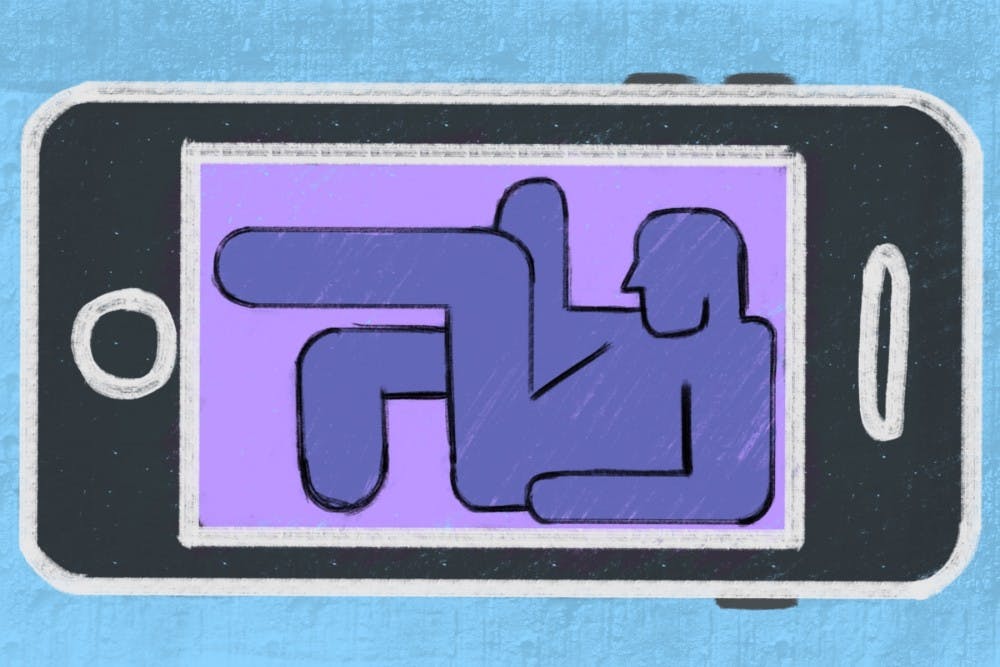According to a study conducted in 2014 on cell phone addiction, college students use their mobile devices for about nine hours a day.
At ASU in particular, having a smart phone is extremely beneficial, especially when you need to access your email, Blackboard, MyASU or campus-specific apps, such as LiveSafe. However, they should not be used as a substitute for human interaction.
Dependency on mobile devices can transform students’ social skills, making them more reliant on virtual communication while inhibiting their ability to converse in person.
While the practicality of cell phones is unparalleled, the reliance students have on them is unhealthy.
Nomophobia is a term abbreviated from the phrase "no mobile-phone phobia," meaning “fear of being without a mobile device, or beyond mobile phone contact.”
In a 2010 study by the UK Post Office, over half of the cell phone users in Britain experienced anxiety when they were separated from their device, experienced low battery or had no network service.
A study conducted by Washington and Lee University in 2013 linked heavy texting and sleep problems in college freshmen. According to the study, excessive texting creates greater interpersonal stress in students, predictably minimizing the amount of sleep they got each night.
90 percent of college students fall asleep with their phones on them or right beside them, many not knowing how much this directly impacts their sleep.
Many students justify this dependence on their mobile device at night in part because they rely on apps such as an alarm clock to wake up for classes.
“If you’re using your phone, make sure you’re using an app to block blue light," Katharine Christian, Ph.D., a specialist at The Snoring and Sleep Apnea Center, said. "The blue light tells us it’s day time and we need to wake up. That’s why it’s hard to transition straight from watching TV to bed.”
In 2014, 70 percent of college students reported that they were not getting enough sleep each night, while 50 percent said they felt tired throughout the day.
If students do not achieve eight hours of sleep, certain cognitive functions, such as learning and memory, can start to decline in performance.
“Not sleeping is a lot like drinking, in just about every single way," Christian said. "You shouldn’t drive if you haven’t been doing a lot of sleeping – you’re going to impair your reaction time just the same. You’re going to impair your judgement just the same as if you’ve been drinking.”
One in two people check a mobile device immediately upon waking up, even during the night, highlighting their addictive quality.
In addition, 66 percent of adults in the U.S. have nomophobia, showing it is time to take a break from technology.
While smartphones have many practical functions, it is important to turn off your mobile device often and maintain your personal health while developing meaningful, in-person relationships.
Reach the columnist at hncumber@asu.edu or follow @hncumber on Twitter.
Editor’s note: The opinions presented in this column are the author’s and do not imply any endorsement from The State Press or its editors. Want to join the conversation?
Send an email to opiniondesk.statepress@gmail.com. Keep letters under 500 words and be sure to include your university affiliation. Anonymity will not be granted. Like The State Press on Facebook and follow @statepress on Twitter.




